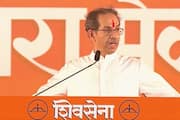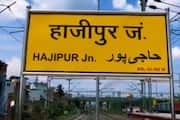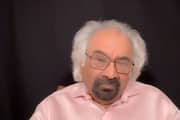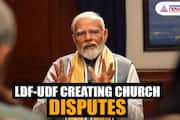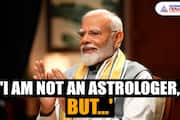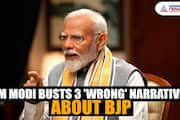Crisis of Islam: Religion calls for relocation, not in need for reformation
According to many, since Islam has remained unreformed, its anachronistic understanding has been at the root of much of the bad publicity that its more zealous followers have been inviting to it.

The reform, if any, has to be in one’s attitude towards the religion, and not in how Islam is interpreted, understood and practiced. The shift in focus from the transcendent to mundane, divine to human, and religious to secular has to be the basis of reform. If people continue to depend on religion for inspiration and justification.
Abhorrent caricature of Prophet Muhammad led to series of gruesome terror attacks which resulted in beheadings in France. However, the clamour for reform in Islam went up as a crisis as alleged in the religion.
French President Emmanuel Macron credited the gruesome violence to what he called the “crisis in Islam”, a characterisation borrowed from the title of a book published in 2003 in the wake of 9/11, The Crisis of Islam: Holy War and Unholy Terror, by the doyen of the Western scholarship on Islam, Bernard Lewis.
According to many, since Islam has remained unreformed, its anachronistic understanding has been at the root of much of the bad publicity that its more zealous followers have been inviting to it.
The word ‘crisis’ sparked a debate as Muslims from a cross-section including leaders such as Pakistan Prime Minister Imran Khan, Turkey’s President Recep Tayyip Erdoğan, and former Malaysian PM Mahathir Mohamad. But surprisingly, a similar word, ‘danger’ — as in the formulation, “Islam in danger” — has been a familiar device of religio-political demagoguery that projects Islam as besieged by a host of enemies who have been conspiring to destroy “the true religion.”
Verses from the Quran are quoted to both arraign and absolve Islam. Defences are mounted arguing whether these are to be understood literally or metaphorically, and to be seen in their contextual terms or transcendental claims. Since much of the contestations centre around the meanings of the canonical literature, the Quran and the Hadith, it is hoped that if these were given a contemporaneous interpretation, Islam would become more compatible with the modern world, and it would cease to yield justifications for regressive practices and violent actions.
Also read: No one can dismantle Hindu way of life if caste-creed distinction is eliminated: Sadhguru
Religions don’t change much, and this optimism tends to forget that the words of scriptures can’t be erased and overwritten. Neither the verses can be changed, nor their conventional understanding. There is a limit to the point it can be stretched into yielding allegorical or contextual meanings, as for the interpretation. In any case, believers don’t have any problem with either the text or its age-old meaning. Their world is tried to mould in accordance with the precepts of the religion. To them, stretching the meaning to measure up to the present world may amount to a subversive reversal of order.
Calls for Reformation in Islam are fashionable but miss a crucial point.
Islam needs ‘relocation’
The reform, if any, has to be in one’s attitude towards the religion, and not in how Islam is interpreted, understood and practiced. The shift in focus from the transcendent to mundane, divine to human, and religious to secular has to be the basis of reform. If people continue to depend on religion for inspiration and justification for their actions, and they don’t graduate to the higher morality of secularism and modernity, no matter how they reinterpret their religion, they would continue to regress. In any case, when it comes to religion, the orthodox position, being of classical vintage, commands better legitimacy.
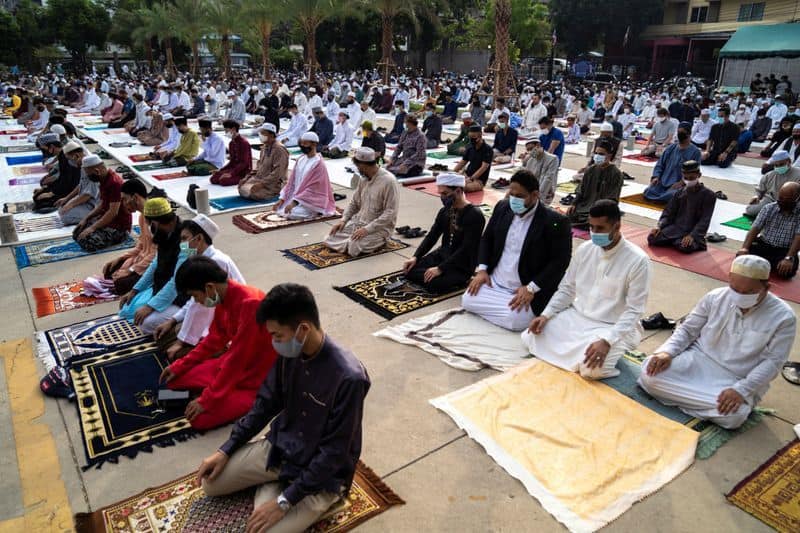
Therefore, rather than reformation of Islam, its relocation and reformulation may be a better ideal. Like other religions in the modern age, Islam too should be relocated to where religions belong — the private sphere. The longer any religion remains part of the public sphere, higher the chances of its politicisation and radicalisation.
The ‘danger’ theory has great psychological value inasmuch as it identifies the enemy in external factors while completely ignoring the internal faults, and thus obviating the need for introspection and self-correction; whereas ‘crisis’ points to internal decay, which calls for a course correction. The very thought that something could be wrong with one’s religion provokes an indignant reaction. The nuance that though there may be nothing wrong with a religion per se, it is wrong that many a thing that isn’t a part of it passes off as such, is missed. Nuance, in any case, is seldom the hallmark of religious discourse.
Unlike Christianity, Islam didn’t have to suffer prolonged persecution. It progressed from acquiring a chieftainship to a State to an empire with lightning rapidity, which turned it into a statist ideology. The religion-cum-ideology was further elaborated into the legal structure of the empire. This led to the unquestioned equation of religion with shariat, and of shariat with law. Therefore, any reform in Islam had to come through the legal route.
Imperialist geopolitics has not only been the axis of the Muslim attitude towards the West, but also an alibi for negating the need for introspection and correction in their own thought and practice. Accordingly, Islamic terrorism is seen as a logical corollary to a long series of wrongs that the Muslims have been suffering at the hands of the West. The list includes the Crusades, colonialism, oil politics, the Cold War, the Afghanistan War, and the support for Israel, etc. This saga of grievance was given academic gravitas by Mahmood Mamdani’s 2004 book Good Muslim, Bad Muslim: America, the Cold War and the Roots of Terror. Such a rationalisation of terror, while partly explanatory, misses the woods for the trees. Focussing on Western machinations in Muslim countries rather than on the motive force behind the acts of terror, it absolves the role of ideology in shaping a religious attitude for which violence is a rational response to a conflict. It also ignores the fact that the imperialist forces could weaponise an ideology, as in Afghanistan, because it already existed. They didn’t create it, they hired it. If an ideology is up for hire, its truth claims must be dubious.
Religion, after all, is a way of worship. To say that one’s religion is a way of life is a statement with little meaning. A way of life is the culture, of which, religion is a constituent. However, little would change if the selfish motive of personal salvation continued to disregard the public welfare. Therefore, Islam has to be reformulated as a people friendly and welfare oriented religion that inspires its followers to do good to people here and now, rather than securing paradise for them after death. Such a secularisation would make people humane rather than dogmatic, and compassionate rather than fanatic, says Hoda.
The question, however, is whether committing acts of terror in the name of Islam, and naming terror outfits after Prophet Muhammad are blasphemy or not? How come such names as Lashkar-e Taiba and Jaish-e Muhammad don’t raise hackles among the Muslims? Isn’t it because of ideological conditioning that nothing amiss is perceived if the Prophet’s name and his teachings are used for wreaking violence? Is it even surprising that on the flag of an important Muslim country, a sword underlays the Islamic profession of faith? Herein lies the crisis of Islam, and the danger to it. Unless Muslims liberate Islam from politics, no redemption is possible, for “the fault, dear Brutus, is not in our stars, but in ourselves, that we are underlings.”
(Author- Najmul Hoda is an IPS officer from Tamil Nadu and views are personal)
NOTE: Asianet News humbly requests everyone to wear masks, sanitize, maintain social distancing and get vaccinated as soon as eligible. Together we can and will break the chain #ANCares #IndiaFightsCorona

